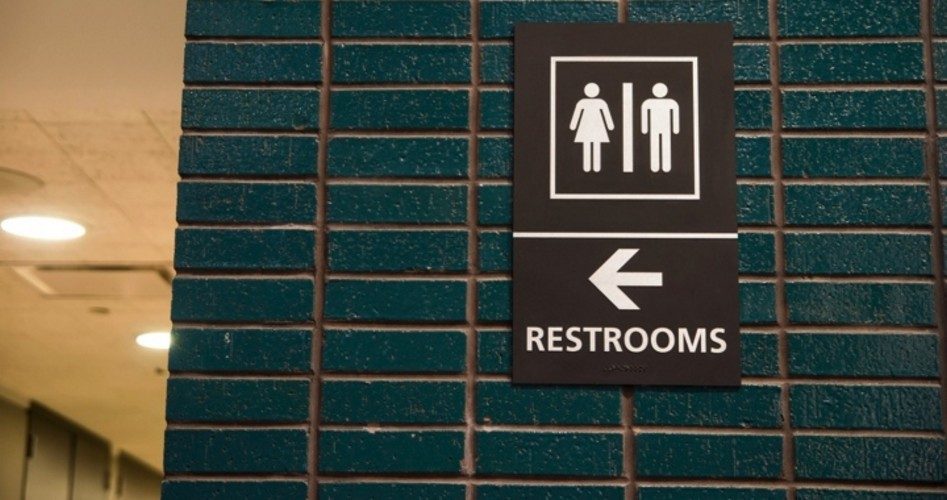
In what has recently become national news, the Massachusetts Department of Education has issued a directive for how schools should deal with “transgender” students, including the rule that students who claim that they identify with the opposite gender must be allowed to use the opposite-sex restrooms and locker facilities. The directive was issued to help ensure that school districts do not run afoul of the state’s 2011 anti-discrimination law that makes transvestites and other transgendered individuals a protected class.
With the rise in aggressive homosexual activism over the last several years has come an increase in the numbers of young people who identify as homosexual or with the opposite gender. “These students, because of widespread misunderstanding and lack of knowledge about their lives, are at a higher risk for peer ostracism, victimization, and bullying,” reads the education department document.
According to the directive, issued last June by the state’s Education Commissioner, Mitchell Chester, the gender with which a student identifies is up to that student and his parent or guardian, so, for example, if a male student insists that he feels more like a female, he must be treated as such, including being allowed to use the girls’ restrooms and locker facilities.
In all instances, the directive mandates, “the student may access the restroom, locker room, and changing facility that corresponds to the student’s gender identity.”
The directive stipulates that a student (in this case, even a male student), “who says she is a girl and wishes to be regarded that way throughout the school day and throughout every, or almost every, other area of her life, should be respected and treated like a girl.”
Explains the directive: “One’s gender identity is an innate, largely inflexible characteristic of each individual’s personality that is generally established by age four… As a result, the person best situated to determine a student’s gender identity is that student himself or herself.”
The directive includes guidelines for a non-gender-based dress code, noting, for example, that “some schools require students to wear gender-based garb for graduation or have gender-based dress codes for prom, special events and daily attire. Schools should eliminate gendered policies and practices such as these.”
Homosexual activist groups were quick to applaud the move as a step forward for protecting vulnerable students, with Gunner Scott of the Massachusetts Transgender Political Coalition calling it “immensely helpful to those parents who have been struggling with making sure that the school environment is safe and welcoming of their child.”
Education spokesperson J.C. Considine said the rules were meant to help students “who have no choice but to be in a school building. Kids have to have restroom access.”
But Andrew Beckwith of the Massachusetts Family Institute (MFI) said the directives sacrifice the safety and sensibilities of all students for the sake of a small minority. Noting that the definition of “transgender” is “extremely broad,” Beckwith said that “if a male student tells his teacher he feels like a girl on the inside, the school has to treat him in every way as if he actually is a girl.” He added that school personnel might be forbidden from informing parents of a child’s gender decisions, “and students can even decide to be one gender at home and another at school.”
The bottom line, said Beckwith, is that “boys need to use boys’ rooms and girls need to be using the girls’ rooms,” adding that “we base that on their anatomical sex, not some sort of internalized gender identity.”
Added MFI president Kris Mineau: “The school commissioner’s first duty is to protect all students, from kindergarten to grade 12, not endanger them. The overriding issue with this new policy is that opening girls’ bathrooms to boys is an invasion of privacy and a threat to all students’ safety.”
Of particular concern to opponents of the directive is the insistence that other students must refer to transgendered students by the sex with which they say they identify. Refusal to do so, states the directive, “should not be tolerated and can be grounds for student discipline.”
For example, while a fifth-grade girl might feel severely uncomfortable with an eighth-grade “transgendered” boy using the same bathroom as she does, under the guidelines she would be out of line in complaining, and could even be subject to discipline for not affirming that the older boy is a girl, Beckwith explained to Fox News February 20. “If the girl continued to complain she could be subjected to discipline for not affirming that student’s gender identity choice,” he said.
Transgender political spokesman Gunner Scott insisted that such a contingency is proper. “The reality is that it’s about creating an inclusive environment for all students to learn,” he said.
MFI noted that earlier this year legislation was introduced that would prevent the scenarios the education department ruling was written to address. Sponsored by Democratic State Representative Colleen Garry, HD 1850, “An Act Relative to Privacy and Safety in Public Accommodations,” would ensure that individuals use restrooms and locker room facilities consistent with their anatomical sex.
“Like many of my colleagues, I am very concerned about Commissioner Chester’s directive to open public school bathrooms to all genders,” said Garry. “This was not the intent of the legislature [in passing the non-discrimination bill], and we need to pass legislation that clearly defines the use of such facilities.”



